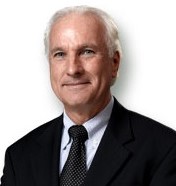Preserving Our History Will Help Us Protect What We've Won

Joe Allen
Guest Columnist
With the generation that started the technology transfer profession gone and the second on its way out, there’s a real danger of losing the knowledge base that allowed us to change the world. That loss would put everything we’ve accomplished in jeopardy. To prevent that outcome, two important steps are being taken now to preserve tech transfer's history while we can.
For the first time, the essential documents capturing the story of Bayh-Dole’s development and implementation are available online through the Bayh-Dole Coalition’s
digital library. At the same time, AUTM is documenting the early history of this organization. Having these resources are critical as we face attacks from those who don’t wish us well.
When I was invited recently to share some memories as part of the early preparations for AUTM’s upcoming 50th anniversary, I talked about my first public speaking experience and how I met the founders of AUTM.
While working for Senator Birch Bayh, I was invited to speak to the Society of University Patent Administrators (SUPA, which later evolved into AUTM) about our just-introduced bill, which became the Bayh-Dole Act. I was terrified because that audience knew more about the subject than I did.
It was SUPA’s largest annual meeting, with about 50 attendees. Today, that’s the size of one AUTM Annual Meeting breakout session. But what a difference they made. That small group changed the world.
They knew that without strong patent protection, coupled with decentralized technology management, billions of dollars in taxpayer support for research and development would be wasted. They also knew how past patent policies had been developed, which was essential in enacting our bill.
One underappreciated contribution is the critical role SUPA played after the passage of Bayh-Dole. Overnight, academic organizations were expected to responsibly manage federally funded inventions, but no training or assistance was offered by the government, and things could have gone badly off track. But AUTM’s founders filled that void, helping the association’s members identify and implement best practices.
Throughout the years, I could call Howard Bremer or Norman Latker to learn the background of the issues we faced related to Bayh-Dole. We rebutted claims that the legislation allowed the government to control prices, that universities didn’t need to have their inventors assign patent rights, or that agencies could misuse the exceptional circumstances provision to escape from Bayh-Dole. We prevailed because we had critical facts proving our case. While we can’t call Howard or Norm anymore, their wisdom will still be available in the new digital library and the oral histories now being recorded by AUTM.
Our opponents constantly rewrite history to undermine Bayh-Dole. If we as a profession lose our understanding of where we came from-- and how we got here—we will be defenseless. As the saying goes: “Knowledge is power.” That’s one lesson we need to pass on.